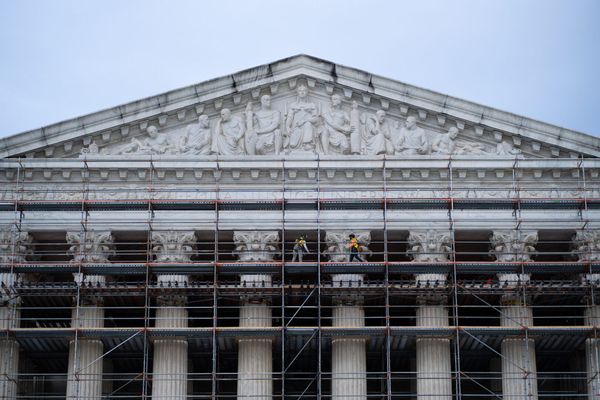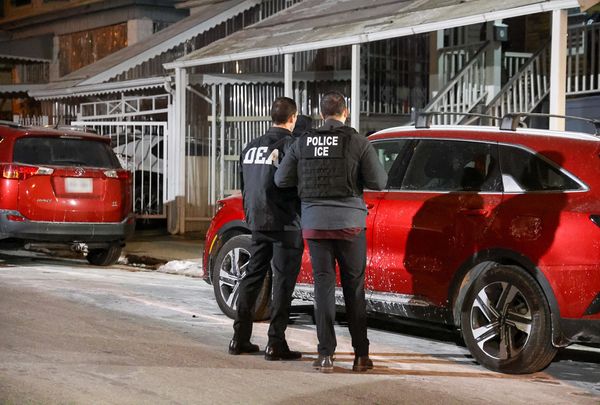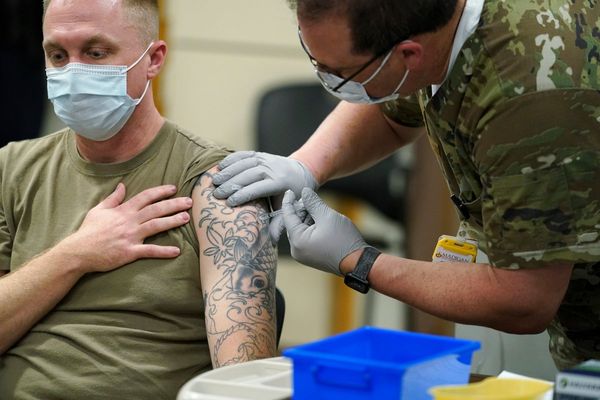More than a dozen African-Australian families who lodged a human rights commission complaint three years ago alleging racism and bullying by some staff at a Melbourne school say the school involved is yet to properly acknowledge their experiences.
The complaints, which relate to incidents at Flemington Primary School between 2017 and 2020, were not resolved through the Victorian Equal Opportunity and Human Rights Commission process due to disagreement on how conciliation should occur.
While the families wanted to meet with the education department as a group, the department — which last year denied the allegations — was only willing to take place in conciliation meetings individually, citing the unique circumstances of each student.
Some families have told the ABC the incidents contained in their initial complaint reflected a pattern over three years at the school where they say African students were singled out for unfair and punitive treatment and parents were treated with disrespect because of their racial background.
Around 40 per cent of students at Flemington Primary School last year had a language background other than English.
Student left 'uncomfortable and embarrassed' after hijab allegedly removed by teacher
One of the former students, Rayan, said she still thought about the moment she stopped feeling safe at school around six years ago.
She was eight years old when she said a teacher at her primary school pulled off her hijab at a school assembly.
"It made me feel really uncomfortable and embarrassed," she told the ABC.
Rayan said she had just walked to the assembly room where everyone was taking their seat before the staff member came up to her.
Her hijab didn't meet the school's colour policy because it had beads and different patterns.
"So instead of them asking me to take [it] off myself, they took it off for me," she said.
The choice of Muslim women and girls to wear a hijab is a deeply personal issue connected to their faith.
Rayan said she was too afraid to say anything in the moment. It was only when she told her mother later that day that she then began to cry.
Her mum asked her why a member of staff would take her hijab off.
"I didn't have any answer because I didn't know why," she said.
The family felt it was an attack on their religion, but said when they met with the school about it, they did not feel like they were listened to.
"They weren't hearing what I was trying to say or what my parents are trying to say," Rayan said.
Rayan's mother, Mako Daher, moved her and her siblings from the primary school three years later.
"I didn't feel that my children were safe. It was my first experience with the schooling system," Ms Daher said.
Complaint details serious allegations made by 13 families
As part of the 28-page complaint to the human rights body, parent Ayan Dahir said the school gave her false information about her son's school injury.
Her son was in Year 1 when he broke his collarbone at school. Ms Dahir was contacted by the school and said she was told the injury occurred while he was playing.
She said after she rushed him to hospital, he shared a different account.
"My son told me that he was deliberately beaten by a non-African child and they were not playing," she said in the complaint.
"This [injury] resulted in my son staying home for three weeks."
Another parent, Safio Ali, alleged her son was prevented from fasting in 2020 by a staff member so he could take his ADHD medication.
She said he usually took the medication in the morning and afternoon, but during Ramadan he had altered the schedule so he could fast.
"[A staff member] called my sister who was caring for my son because I was overseas and she said that he cannot fast … and stated that they did not care about religion or beliefs," the complaint reads.
Families say school threatened police visits
Another of the parents, Ubah Scek, said her son had suffered ongoing trauma after police officers arrived at their locked-down public housing flat to discuss his school attendance.
Ms Scek said she was in the bathroom when the police arrived at her North Melbourne home and began quizzing her seven-year-old son Salmaan about his wellbeing.
"Why were the police there? Their answer, the wellbeing of Salmaan, and his safety. There was no indication or reason to feel he was unsafe," Ms Scek said.
The police had been sent after Salmaan had missed a number of home-schooling days over the previous months — but she said he had been in contact with his teacher the week before the police visit.
Ms Scek said at the time, her family was still dealing with the difficulties of a hard lockdown at their public housing tower weeks earlier and the subsequent statewide COVID-19 shutdown.
They were trying to manage home learning with a poor internet connection, in a cramped three-bedroom flat that housed her five children.
"One is learning, maybe has a test, another wants to play and make noise. It was never quiet, there was never a quiet place for them to study," she said.
"It was very stressful but that's all we had, and as a mum that's all I could do."
Ms Scek still cannot understand why police were sent on a welfare check.
"It's not like I have a history of abusing my kids, it's like a bad mother, or mentally unstable," Ms Scek said.
Ms Scek said the school could have taken more steps to speak with her about her son missing classes before calling the police, especially given her family's circumstances.
She said her son had nightmares after the police visit because it came on the back of the police-enforced public housing lockdown. She ended up taking him to see a psychologist after the incident.
"He was asking for weeks, 'are the police coming back, are they going take me away, what have I done bad, am I a bad boy?'," she said.
"He would come at the middle of the night with his blanket, and ask if he could sleep with me."
Her concerns were echoed by three other families who lived in the locked-down public housing towers, who said police visits were inappropriately raised by school staff during discussions about their child's attendance.
Families complain about communication from the school
In their complaint to the commission, several parents described being treated with rudeness and condescension by some members of staff, with one likening her treatment to being "scolded like a little child".
At least four families left the school during the period outlined in the complaint, citing a lack of understanding of their religion and a lack of respectful communication.
The Victorian Department of Education said it investigated the allegations raised by the group of families at the time. It said it had made recommendations to the school which had since been implemented.
"Flemington Primary School is committed to the cultural safety and inclusion of its diverse community, having implemented a number of proactive programs that promote cultural diversity, address racism and provide targeted supports for students from diverse backgrounds," a spokesperson said.
The school has also employed a Transition and Cultural Safety Officer since late 2021.
But the families told the ABC they had not received an apology or acknowledgement of what occurred.
Last month the group received correspondence from the lawyers representing them informing them that their case with the Victorian Equal Opportunity and Human Rights Commission had been closed.
Swinburne University psychology researcher Hannah Yared said any racism suffered by school-aged students could have pervasive impacts on academic outcomes, mental and physical well-being, school belonging and identity.
"Schools are one of the most common places that [students] experience racism. And it can happen from their peers. It can happen throughout the curriculum and the teaching materials," Ms Yared said.
Ms Yared said she would like to see the Victorian government invest in better training to boost racial literacy among teachers, so they could better address racism when it occurred and open up conversations.
"It starts in childhood, it can have a cumulative effect on children and young people throughout their lives," she said.
"So it can have a big impact in terms of their health, you know, increases in anxiety and depression."
Three years on, Ms Scek wants African-Australian families feel comfortable sending their children to Flemington Primary School.
She said that could only happen when the families' allegations were acknowledged.
"[I want them] to feel comfortable, to feel equal and take their kids to that school without fearing there will be discrimination, there will be injustice, there will be harassment," she said.
"We want our kids who are born here, who sees themselves the same as any other kid to feel equal and to be treated with dignity, with respect."







